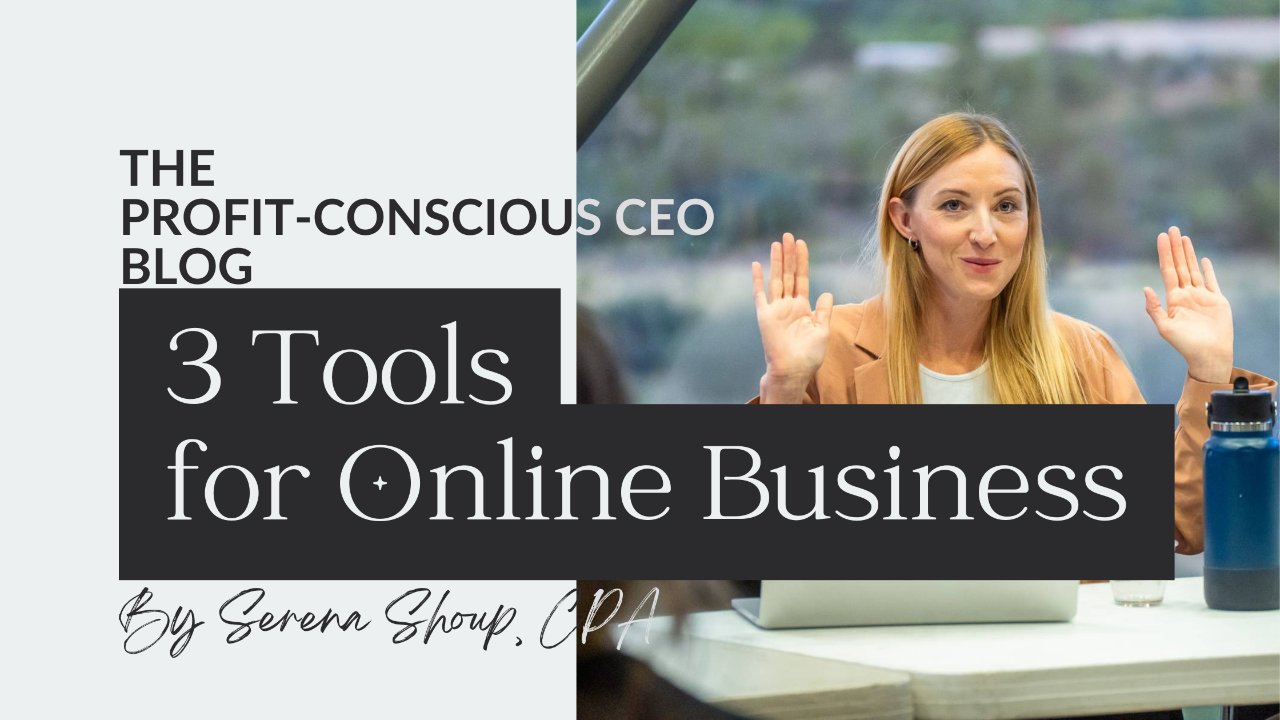How Often to Launch Your Course

How Often Should You Launch Your Course?
One of the most common questions I hear from course creators is can you help me with cash flow projections? But what they really want to know is a combination of… “How often should I launch my course?”
“Can I afford this mastermind?”
“Can I afford to hire this person?”
And while there’s no one-size-fits-all answer, the real key lies in your numbers—specifically your burn rate and how long the cash from your last launch will realistically last.
Step 1: Know Your Burn Rate
Your burn rate is simply how much money you spend each month to keep your business running. It includes:
- Team and contractor expenses
- Software subscriptions
- Marketing and advertising
- Your own paycheck
- Any business debt you’re paying down
👉 Example: If your monthly expenses total $8,000, that’s your burn rate.
Step 2: Figure Out Your Runway
Your runway is how long your cash from the last launch will last before you need to launch again.
👉 Example:
- Launch ...
3 Tools to Power Your Online Course Business

3 of the most important tools you need in your online business
Starting a business can feel overwhelming—especially when it comes to managing your finances. If you’re a new business owner, you might be wondering:
- Do I really need a business bank account yet?
- Is accounting software worth it if I’m not making much?
- What do I actually need to keep for taxes?
The good news? You don’t need to be a “numbers person” to keep your business finances organized—you just need the right tools & habits in place.
In this post, I’m sharing three essential (and affordable) tools I recommend to every small business owner I work with. Together, they create a simple money system that will help you stay organized, save time, and make smarter business decisions from day one.
1. Relay – Online Business Banking That Actually Works for You
One of the first things you should do when starting your business—even before you make your first sale—is open a separate business bank account.
Why? Because ...
Fair Tax vs. Tariffs: What Online Business Owners Need to Know

A couple months ago, I wrote a blog about the Fair Tax Act—a proposed law that would eliminate income tax and replace it with a national sales tax. But that’s not the only major tax shift making headlines.
Right now, we’re already feeling the impact of tariffs—and with recent announcements from both political parties, it’s clear this conversation is far from over.
In this blog, I’ll break down:
- What the Fair Tax Act is (and why it's controversial)
- How tariffs work (and how they’re already affecting us)
- What this all means for your business, especially if you're in eCommerce
The Fair Tax Act: A National Sales Tax
The Fair Tax Act proposes eliminating income taxes—personal, business, payroll, estate, corporate—and replacing them with a flat national sales tax of roughly 23% to 30%.
How It Works:
✅ No more income, payroll, or estate taxes
✅ A flat national sales tax on all new goods and services
✅ Collected at the point of sale by businesses
✅ States would administer ...
Using AI as Your Financial SideKick

This blog is a little different than most of the super educational blogs I usually post each month. But I promise it still has value. If you like this format, I'd love to know.
One of my big (and slightly scary) goals this year is to grow my DIYBooks Membership to 20 new members by the end of 2025.
It feels doable, but for some reason, it’s been a challenge to promote it. I’m committed to showing up for it anyway, because I know it’s so needed — especially for those who aren’t quite ready to hire a bookkeeper yet. I’m excited to have an offer that truly helps people at that stage until they're ready for a bigger step.
On a more personal note, another goal of mine is to record an EP this year with the music I've written. 🎶
I've taken a little break from open mics and performing to focus on life and business, but I'm not letting go of that dream.
And how am I getting the word out about my membership?
This month I’ll be speaking at the AI Unlocked Summit & how online businesses c...
The Fair Tax Act

Admittedly, I don’t watch the news much… some days I’m even surprised by the weather. But the other night, I lay awake wondering… what happens if income tax goes away and everything moves to tariffs? Will businesses even need me and other bookkeepers anymore?
So after I spiraled for a bit, I turned on a sleep meditation podcast and decided I would tackle this in the morning.
Turns out, businesses will still need us bookkeepers and accountants. So let’s dive in to this two-parter, starting with the Fair Tax Act (we’ll get to tariffs on the next blog):
What the Fair Tax Act Means for Small Businesses (and Why Bookkeeping Still Matters)
There’s been a lot of buzz about the Fair Tax Act of 2025, which proposes eliminating income taxes, payroll taxes, and even the IRS—replacing them with a national sales tax instead. If passed, this would mean a huge shift in how businesses handle taxes and finances. But before you get too excited (or worried), let’s break it down:
What Is the Fair Tax...
What Can I Write Off in my Online Business?

A few days ago, I had a conversation with a local marketing freelancer that illuminated the fact that many people are missing out on deductions/write-offs they can take. So figured it was time for a blog on this one!
First off…
What’s a Write Off?
A write-off is an expense that a business can deduct from its taxable income, reducing the overall tax burden. This isn’t a dollar-for dollar reduction in taxes (that’s a credit). But it does reduce the your business’s income.
How do you get to that number?
Revenue (Total Sales)
(Less: Expenses → aka write-offs)*
= Taxable Income
Ordinary & Necessary
*These expenses must be ordinary and necessary for the business to qualify under IRS rules. What does that mean?
Is it ordinary for your industry?
Is it necessary to run your business?
Of course… there’s always grey areas, so that’s when it become quite important for you to document your stances. This is where keeping receipts comes in real handy.
For online business...
Can I write off Clothing?

Can You Deduct Clothing as a Business Expense? Here’s What the IRS Says!
If you’ve ever wondered whether you can write off that sleek new ‘fit or branded business attire for a photo shoot, you’re not alone. As entrepreneurs and professionals, we invest in looking the part—but does the IRS see it as a deductible business expense? Let’s break it down.

IRS Rules on Deducting Work Clothing
The IRS has a simple test when it comes to clothing deductions:
✅ Required for your job – The clothing must be specifically mandated for your work or business.
✅ Not suitable for everyday wear – Even if you only wear it for work, if it could be worn outside of work, the IRS won’t allow the deduction. This even means things you normally would not wear outside of work/that branding photo shoot.
Under IRC §162(a), business expenses must be ordinary and necessary to be deductible. Treasury Regulation §1.162-5 further clarifies that clothing is only deductible if it meets both of the above criteria.
...Why Documenting HR is Essential for Small Business Success

Hey there! I’m Katy Murray, an entrepreneur and Human Resources professional, and I’m incredibly passionate about both. I absolutely love how much these two areas overlap, and I’m always finding ways to pull tricks from one and apply them to the other. Whether you’re a one-person operation or managing a small team, I can’t stress enough how crucial it is to document your HR processes for long-term success.
When most people think of Human Resources (HR), they picture big companies with hundreds of employees and complex departments. But honestly, HR is just as vital for us small business owners. Whether you have one employee or ten, documenting your HR processes is key to staying compliant, protecting your business, and creating a healthy work culture. I’m excited to share some practical tips and easy steps to help you start documenting like a pro, no matter the size of your business!
Disclaimer: The information provided in this blog post is for general informational purposes only an...
Bookkeeping for Small Business on The Money Diaries

Last month I had the pleasure of being a guest on The Money Diaries Podcast hosted by Nicole Ayub. If you’re interested in going deeper on your personal finances and learning more about investing, I hight recommend her podcast!
The Money Diaries is your friendly source of wisdom and insights about personal finance, entrepreneurship, and everything in between!
Exploring Emotional Relationships with Money
Nicole kicks off the episode by emphasizing the importance of addressing our emotional relationships with money. At The Money Diaries, the goal is to have candid conversations about our financial fears, shame, habits, and behaviors. The aim?
To heal and build a more beautiful, healthy relationship with our finances.
Serena's Journey from Corporate to Entrepreneurship
Serena shares her inspiring journey from a corporate controller to a successful entrepreneur. She left her corporate job to stay home with her second daughter and ended up turning her freelance bookkeeping gig into ...
Hiring Virtually (in other states)

5 Key Considerations for Online Business Owners Hiring Out-of-State Employees
So many of my clients have cast a wide net in their hiring because we can as online business, doing everything online. However, something that often gets overlooked is the compliance & complexity when it comes to hiring someone in a different state than where you are based/registered.
So I figured it was time to add this to the blog. Here are some things you want to consider and figure out before deciding to send that job offer once you’ve narrowed down your candidates.
1. Understand Employment Laws: Each state has its own employment laws, including minimum wage, overtime, and employee classification rules. Familiarize yourself with these to avoid legal pitfalls. Check out the blog post we did here about employee classification. Some states are more strict than others.
2. Register Your Business: You may need to register your business in the state where your new employee or contractor resides. This often i...

